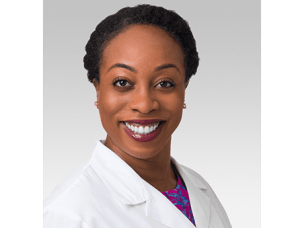Expert Opinions
Dr. Sasha Hamdani: Adult ADHD
In this MD Newsline exclusive interview with psychiatrist Dr. Sasha Hamdani, we discuss how commonly ADHD is diagnosed in adulthood. We also discuss why ADHD is underdiagnosed and undertreated. MD Newsline: How commonly is ADHD diagnosed in adulthood? Dr. Sasha Hamdani: “ADHD is now starting to get diagnosed in adulthood more often, but it’s still...
Dr. Victoria Barbosa: Providing Culturally Sensitive Care
In this MD Newsline exclusive interview with dermatologist Dr. Victoria Barbosa, we discuss how to provide culturally sensitive care and overcome language barriers. MD Newsline: How have you been able to implement culturally sensitive care in your practice? Dr. Victoria Barbosa: “For me, the first step in providing culturally sensitive care to patients is approaching...
Dr. Victoria Barbosa: CCCA Disparities & COVID-19
In this MD Newsline exclusive interview with dermatologist Dr. Victoria Barbosa, we discuss disparities in diagnosing and treating central centrifugal cicatricial alopecia (CCCA) before and during the COVID-19 pandemic. MD Newsline: What disparities in diagnosing and treating CCCA have you observed in your clinical practice? Dr. Victoria Barbosa: “Recent research has shown us that CCCA...
Addressing Implicit Bias in Dermatology
In this MD Newsline exclusive interview with dermatologist Dr. Victoria Barbosa, we discuss how to address implicit bias in dermatology. MD Newsline: How can dermatologists address implicit bias in their practice? How might their doing so improve healthcare for underserved communities? Dr. Victoria Barbosa: “The first step to addressing implicit biases is to recognize that...
Dr. Victoria Barbosa: Central Centrifugal Cicatricial Alopecia (CCCA)
In this MD Newsline exclusive interview with dermatologist Dr. Victoria Barbosa, we discuss what central centrifugal cicatricial alopecia (CCCA) is and why it is an important health issue. MD Newsline: Can you explain what central centrifugal cicatricial alopecia (CCCA) is and why it is an important health issue? Dr. Victoria Barbosa: “Central centrifugal cicatricial alopecia...
Dr. Kaminska: Providing Culturally Sensitive Care
In this MD Newsline exclusive interview with dermatologist Dr. Edidiong Kaminska, we discuss how to provide culturally sensitive care and overcome language barriers. MD Newsline: How have you been able to implement culturally sensitive care in your practice? Dr. Edidiong Kaminska: “I love my practice. My staff looks like the United Nations. When you have...
Making Meaningful Change in Dermatology Research
In this MD Newsline exclusive interview with dermatologist Dr. Edidiong Kaminska, we discuss the latest research on melanoma treatment. We also discuss how to improve diversity and inclusion in dermatology clinical trials. MD Newsline: Is there any research that excites you or that you think is important for physicians to know related to the diagnosis and...
Dr. Edidiong Kaminska's Melanoma Treatment Strategy
In this MD Newsline exclusive interview with dermatologist Dr. Edidiong Kaminska, we discuss Dr. Kaminska’s melanoma treatment strategy. MD Newsline: How do you manage melanoma? Dr. Edidiong Kaminska: “Melanoma management depends on the stage of the melanoma. Usually, at the dermatological level, after a biopsy when the diagnosis is confirmed, if it is a stage...
Addressing Implicit Bias in Dermatology
In this MD Newsline exclusive interview with dermatologist Dr. Edidiong Kaminska, we discuss how to address implicit bias in dermatology. MD Newsline: How can dermatologists address implicit bias in their practice? How might their doing so improve healthcare for underserved communities? Dr. Edidiong Kaminska: “Dermatologists can address implicit bias in many ways. For example, they can...
More Medical News








